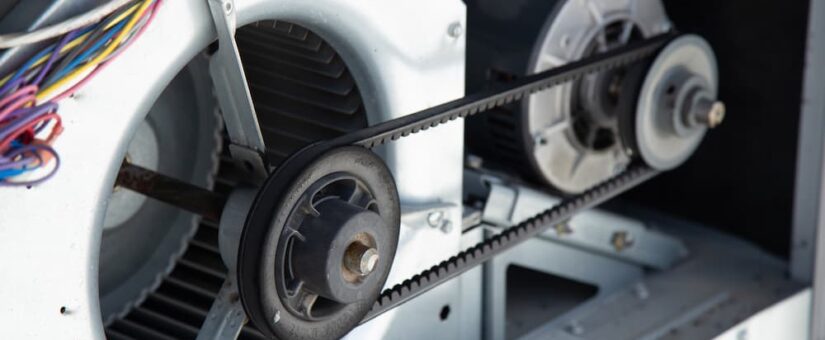
- On January 14, 2023
Late June in Phoenix, AZ can see the temperature reach 110°F and top 99°F nearly every day the rest of the summer. With this heat, you want to ensure your air conditioner and all of its components are working well together to keep your home cool and comfortable. One of the most common component failures Howard Air & Plumbing regularly sees is a broken fan motor. We will discuss what the A/C Fan motor does and when you need to replace it to avoid more costly repairs.
What is a Fan Motor & What Does it Do?
When your home is having trouble cooling down, it might be time to replace the air conditioner’s condenser fan motor. The fan motor keeps the compressor from overheating and helps cool your home by cooling the superheated refrigerant that flows through the air conditioner’s condenser coils.
Additional parts in your air conditioner might rapidly stop operating without a functioning fan motor, causing the need for additional repairs and the stress and potential dangers of a sweltering home.
Signs You Need to Repair Your A/C Fan Motor
If your air conditioning unit is producing unusual noises, the type of noise can guide you to the underlying problem. If you hear either of the following noises, it could indicate the fan motor is failing.
- Rattling A rattling sound could mean that the fan motor or some of its components have loosened or are beginning to malfunction, but it could also be something else, like the fan blades scraping against the metal housing. Your Howard Air & Plumbing technician can inspect the unit to see what other issue could be causing the sound.
- Screeching A metal-on-metal sound typically indicates that the bearings in your ac fan motor are failing. If you hear screeching from your air conditioner, it is crucial to address it as soon as possible by having it inspected.
How Much Does an A/C Fan Motor Replacement Cost?
The A/C fan motor cost can range from $900 to $1,800 for a replacement depending on warranty status, model and brand. It’s critical to get this replaced as soon as possible because if the ac fan motor fails, your air conditioner’s compressor is likely the next component to break. Replacing the compressor costs considerably more, ranging from an average of $2,500 – $6,500, depending on the brand.
Avoiding Air Conditioning Breakdown
Regular maintenance is the most effective approach to prevent a malfunctioning fan motor or any other type of air conditioning issue. Your qualified Howard Air & Plumbing technician will examine and repair any parts in need during a maintenance visit to verify that your air conditioner is operating properly and efficiently to handle the Phoenix heat.
While air conditioning preventative maintenance does have a small upfront cost, you will save money in the long run by preventing more costly repairs and prolonging the useful lifespan of your air conditioning unit. This will also be comforting to know that when your air conditioner is battling the Phoenix summer heat, it is ready and up to the task.
Get Your A/C Fan Motor Replaced Fast With Howard Air & Plumbing
Your air conditioner’s fan motor is one of the most critical components within the system, cooling the superheated coolant and keeping the compressor from overheating. By completing preventative maintenance and having your air conditioner inspected either when you hear unusual noises or during a pre-summer annual inspection, you can help prevent breakdowns when you truly need to cool your home. The AC fan motor cost to repair is significantly cheaper than replacing the compressor so that preventative maintenance can save you money in the long run.
Since 1977, Howard Air & Plumbing has been Phoenix’s trusted source for expert heating and cooling services. We are so confident in our technicians’ expertise and ability to repair and maintain your system that we will return free of charge in the unlikely event you experience a failure after service. To beat the heat, trust Howard Air & Plumbing.
Schedule your inspection today or call us anytime, day-or-night for emergency service!
Image Source: William Hager / Shutterstock


















0 Comments